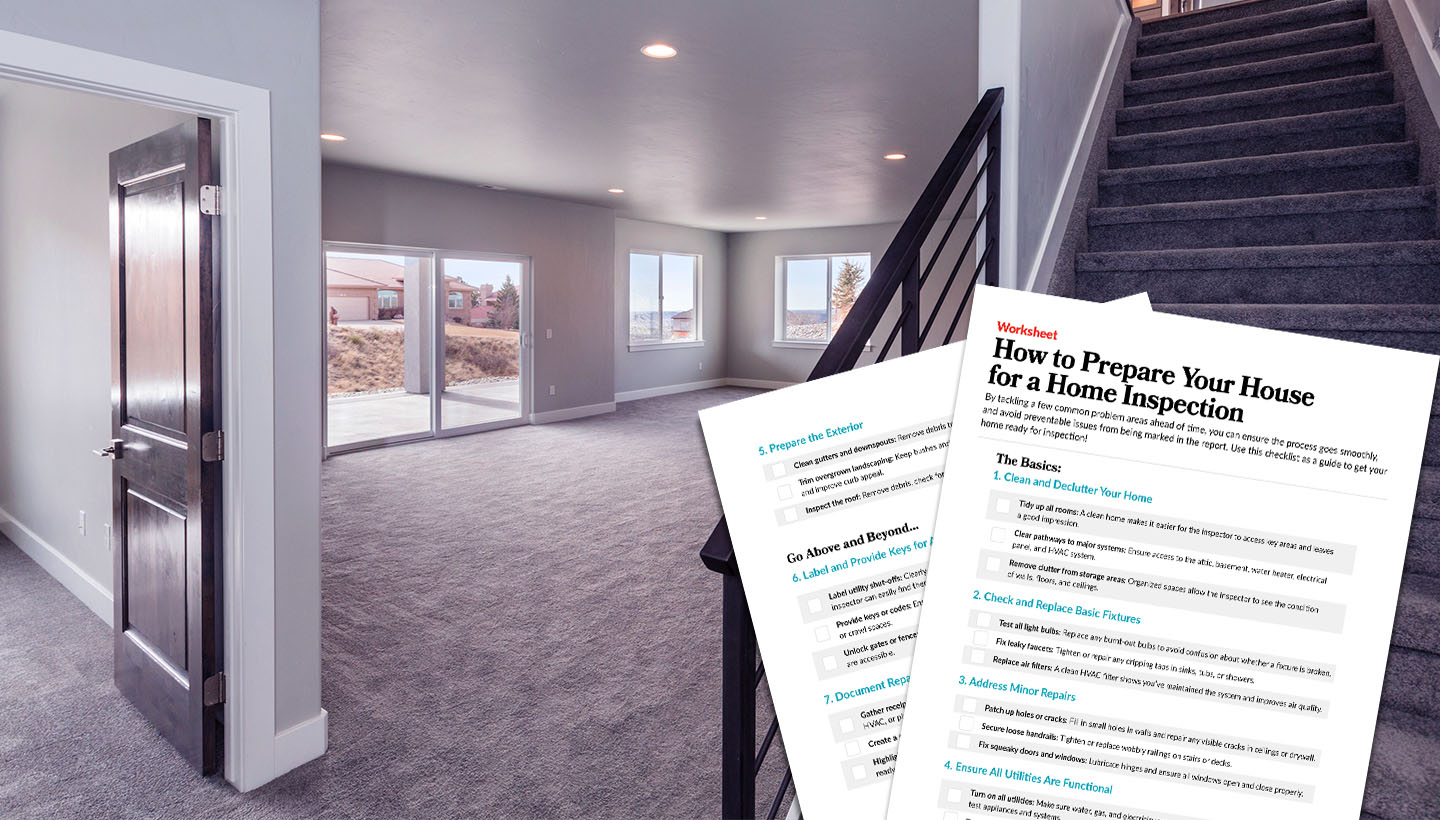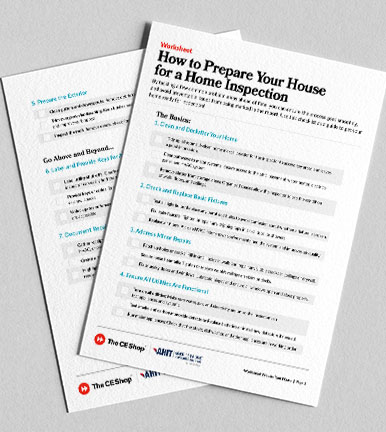
How to Prepare for a Home Inspection
The carpet is clean, the furniture is staged, and the photos have been taken, but there’s more you can do to prepare for your home sale. By tackling a few common home inspection issues before the inspector comes, you can present your home with confidence and show buyers it has been well-maintained — and avoid any unpleasant surprises in the inspection report! Download this simple worksheet below to help you prepare for a home inspection.
Download Now: Free Home Inspection Preparation Checklist
Once you save this worksheet, you can check off the boxes from your computer, or even print it out and mark it up as you go!

This worksheet covers everything from replacing bulbs and fire alarms to going above-and-beyond with maintenance histories for your inspector to review. The more you’re able to accomplish before your inspection, the better!
Why Prepare for a Home Inspection?
Grab your toolkit, because getting your home sale-ready goes beyond staging the furniture!
Preparing for your home inspection helps create a smooth and positive experience for everyone involved in the sale. Getting ahead of small repairs shows potential buyers that your home has been well cared for, giving them confidence in their purchase. This simple step can prevent last-minute surprises, speed up the closing process, and help you secure the best possible outcome for your sale.
Common Home Inspection Issues
Not every home was built (or cared for) the same way. Plus, different regions will have different common issues to deal with. Mold and leaks are more common in humid states, and foundation cracks are more of an issue in areas built on active fault lines. Still, there are some issues that are more common than others, and some issues that are more important to handle first.
That said, some of the most common and preventable issues a home inspector will find include:
- Burnt-Out Light Bulbs: Ensure all lights are working to avoid concerns about electrical issues.
- Leaky Faucets: Tighten or replace washers to stop drips.
- Clogged Gutters: Remove debris to show proper drainage and prevent water damage.
- Gaps Around Windows and Doors: Use caulk or weatherstripping to improve insulation.
- Faulty or Dead Smoke and Carbon Monoxide Detectors: Replace batteries or install new detectors if needed.
- Loose Handrails: Secure wobbly railings on stairs or decks.
- Dirty Air Filters: Install fresh filters in your HVAC system for better airflow.
- Small Wall Holes: Use spackle to fill nail holes or minor dents.
- Pest Infestation: Trim overgrown landscaping, get rid of weeds around the property, and spray or hire pest control to deal with infestations.
- Missing or Broken Outlet Covers: Replace any missing or damaged covers for safety.
The Best Way to Prepare for a Home Inspection
The best way to prepare for a home inspection is to stay on top of your routine home maintenance. Create a system you can follow weekly, monthly, and seasonally so that your home is in tip-top shape, whether you’re preparing for a visit from your in-laws or your inspector!
Your Inspector Is on Your Side
Remember, your home inspector’s job is to ensure that your home is safe and livable. So, you can think of them as your partner in the process, here for that last quality check before you pass your home on to someone else. As the seller, you are also welcome to purchase and attend a pre-listing inspection so that you can learn more about your home and the things your inspector is looking for — the golden ticket to preparing for the real thing.




